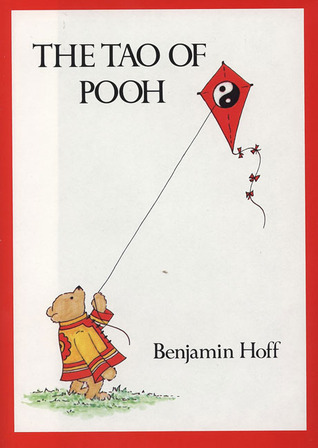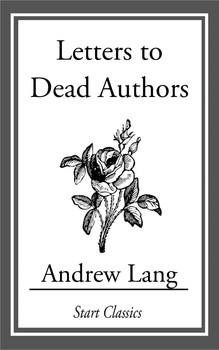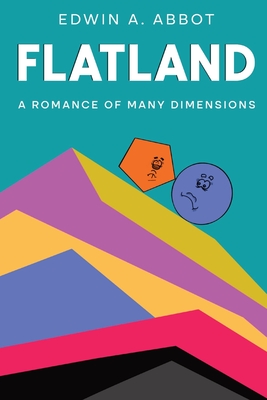182 Results with the "Philosophical" genre
Adventure Fiction (1164)
Biography (435)
Business & Finance (1)
Children's Literature (124)
Comics (6)
Culture (51)
Drama (123)
Dystopian (29)
Fable (86)
Fantasy (1132)
Fantasy (203)
Fiction (1010)
Finance (1)
Gothic Fiction (12)
Historical Fiction (615)
History (122)
Horror (56)
Lifestyle (36)
Literary (404)
Literary Fiction (207)
Memoir (113)
Mystery (422)
Non-fiction (87)
Novel (549)
Paranormal Fiction (96)
Philosophy (45)
Poetry (249)
Political Fiction (14)
Politics (42)
Practical (32)
Psychological (4)
Psychological Thriller (108)
Relationship (6)
Romance Novel (716)
Romantic Melodrama (14)
Satire (91)
Science (46)
Science Fiction (345)
Self-help (68)
Society (65)
Society (2)
Spiritual Growth (1)
story (2)
Thriller (704)
True Crime (56)
view (11)
Women's Fiction (2)
Young Adult (233)
-
Story
The Tao of Pooh
 The Tao of Pooh by Benjamin Hoff uses Winnie the Pooh to explain Taoism, showing how simplicity and harmony lead to peace and contentment.
The Tao of Pooh by Benjamin Hoff uses Winnie the Pooh to explain Taoism, showing how simplicity and harmony lead to peace and contentment.-
4.5 K • Jan 24, '25
-
4.9 K • Jan 24, '25
-
4.2 K • Jan 24, '25
-
-
Chapter
LETTER–To Robert Burns
 Letter to Robert Burns begins not with solemn tribute but with the familiar cadence of fondness, both for the man and the myth he became. You were not just Scotland’s poet—you were its pulse, its raw nerve, its laughter after loss. Your name, once printed in Kilmarnock, echoed far beyond the fields of Ayr, finding kinship in places where hearts break and songs rise to meet the pain. When Scots raise a glass in your name, it is not just nostalgia. It is recognition of something unshaped by…
Letter to Robert Burns begins not with solemn tribute but with the familiar cadence of fondness, both for the man and the myth he became. You were not just Scotland’s poet—you were its pulse, its raw nerve, its laughter after loss. Your name, once printed in Kilmarnock, echoed far beyond the fields of Ayr, finding kinship in places where hearts break and songs rise to meet the pain. When Scots raise a glass in your name, it is not just nostalgia. It is recognition of something unshaped by…-
82.9 K • Ongoing
-
-
Chapter
Chapter 15 — The Grand Opera Fad
 Chapter 15 - The Grand Opera Fad opens with a sharp yet playful reflection on why people flock to operatic performances, especially those as sprawling and intense as Wagner's. While the grandeur of the opera promises cultural elevation, not all who attend are moved by the music itself. This chapter turns its attention to the contrasting motives behind attending the opera, revealing a vivid tapestry of vanity, aspiration, and sincere artistic love that shapes the opera house’s crowd. Some individuals in…
Chapter 15 - The Grand Opera Fad opens with a sharp yet playful reflection on why people flock to operatic performances, especially those as sprawling and intense as Wagner's. While the grandeur of the opera promises cultural elevation, not all who attend are moved by the music itself. This chapter turns its attention to the contrasting motives behind attending the opera, revealing a vivid tapestry of vanity, aspiration, and sincere artistic love that shapes the opera house’s crowd. Some individuals in…-
151.7 K • Ongoing
-
-
 Section 15 begins in the quiet of a reflective evening, marking the final day of the 1999th year. The steady rhythm of the rain had already welcomed the night, and I sat in silence with my wife as we anticipated the arrival of a new age. With our children and grandchildren already retired to their rooms, the moment held a kind of reverence, a solemn appreciation for the cycles of time. There’s something profound about witnessing not just the end of a year, but the close of a millennium. It invites…
Section 15 begins in the quiet of a reflective evening, marking the final day of the 1999th year. The steady rhythm of the rain had already welcomed the night, and I sat in silence with my wife as we anticipated the arrival of a new age. With our children and grandchildren already retired to their rooms, the moment held a kind of reverence, a solemn appreciation for the cycles of time. There’s something profound about witnessing not just the end of a year, but the close of a millennium. It invites…-
92.9 K • Ongoing
-
-
Chapter
Patience
 In an age where speed is often glorified, patience emerges as an underappreciated virtue, reminding us of the value found in slowing down and embracing the process. The modern world frequently encourages instant gratification—whether through rapid information consumption, quick-fix solutions, or the pursuit of overnight success. Yet, history and experience reveal that true mastery, fulfillment, and even happiness stem from patience and perseverance. The text "Patience" challenges the notion that faster…
In an age where speed is often glorified, patience emerges as an underappreciated virtue, reminding us of the value found in slowing down and embracing the process. The modern world frequently encourages instant gratification—whether through rapid information consumption, quick-fix solutions, or the pursuit of overnight success. Yet, history and experience reveal that true mastery, fulfillment, and even happiness stem from patience and perseverance. The text "Patience" challenges the notion that faster…-
341.4 K • Ongoing
-
-
Chapter
Spontaneity (Special Moments)
 Spontaneity plays a crucial role in the creative process, offering a unique dimension to artistic expression. This chapter explores whether works created in a moment of inspiration hold the same value as those meticulously crafted over time. It suggests that art is not necessarily defined by the duration of its creation but by the emotional impact it has on the audience. Whether a piece takes years to refine or emerges effortlessly in a single sitting, its significance lies in its ability to connect with…
Spontaneity plays a crucial role in the creative process, offering a unique dimension to artistic expression. This chapter explores whether works created in a moment of inspiration hold the same value as those meticulously crafted over time. It suggests that art is not necessarily defined by the duration of its creation but by the emotional impact it has on the audience. Whether a piece takes years to refine or emerges effortlessly in a single sitting, its significance lies in its ability to connect with…-
341.4 K • Ongoing
-
-
Chapter
Chapter 7: Bisy Backson
 In this chapter Bisy Backson portrays a character who is overwhelmed by the need to stay busy, yet his frantic efforts lead him nowhere. The story begins with Rabbit, who starts his day feeling important, but quickly becomes puzzled when he finds Christopher Robin’s house empty, except for a mysterious note saying “GON OUT BACKSON BISY BACKSON.” This cryptic message piques Rabbit's curiosity about who or what the Backson might be. Determined to find answers, Rabbit consults Owl, but discovers that…
In this chapter Bisy Backson portrays a character who is overwhelmed by the need to stay busy, yet his frantic efforts lead him nowhere. The story begins with Rabbit, who starts his day feeling important, but quickly becomes puzzled when he finds Christopher Robin’s house empty, except for a mysterious note saying “GON OUT BACKSON BISY BACKSON.” This cryptic message piques Rabbit's curiosity about who or what the Backson might be. Determined to find answers, Rabbit consults Owl, but discovers that…-
68.0 K • Ongoing
-
-
 Chapter IV offers a striking departure from traditional philosophical thought by challenging how we perceive and interpret reality. Henri Bergson insists that what we commonly call perception is not simply a private mental image but a direct connection with the real world. However, our practical needs limit this connection, pushing us to filter and simplify what we experience. What reaches our awareness is only a fraction of what exists, trimmed by usefulness and habit. In this sense, ordinary perception…
Chapter IV offers a striking departure from traditional philosophical thought by challenging how we perceive and interpret reality. Henri Bergson insists that what we commonly call perception is not simply a private mental image but a direct connection with the real world. However, our practical needs limit this connection, pushing us to filter and simplify what we experience. What reaches our awareness is only a fraction of what exists, trimmed by usefulness and habit. In this sense, ordinary perception…-
57.6 K • Ongoing
-
-
 Chapter 26 - Pre-palatial Newport brings to light a period of quiet charm in Newport, long before it became synonymous with extravagant mansions and social grandeur. This chapter paints the Ocean House not as a mere hotel, but as a cultural cornerstone, representing a simpler time in American leisure history. It stood during an era from 1845 to 1885, when society’s pleasures were modest, refined, and deeply rooted in community. Families gathered for early dinners, strolls replaced formal engagements, and…
Chapter 26 - Pre-palatial Newport brings to light a period of quiet charm in Newport, long before it became synonymous with extravagant mansions and social grandeur. This chapter paints the Ocean House not as a mere hotel, but as a cultural cornerstone, representing a simpler time in American leisure history. It stood during an era from 1845 to 1885, when society’s pleasures were modest, refined, and deeply rooted in community. Families gathered for early dinners, strolls replaced formal engagements, and…-
151.7 K • Ongoing
-
-
Chapter
Tuning In
 The chapter "Tuning In" delves into the idea that creativity is not an isolated human endeavor but a universal force that permeates all aspects of existence. Just as rivers carve landscapes and trees sprout leaves in accordance with nature’s cycles, human beings create in alignment with an unseen, yet omnipresent, creative energy. The text suggests that this energy, often perceived as inspiration, is not something individuals generate on their own but something they tune into—much like radio antennas…
The chapter "Tuning In" delves into the idea that creativity is not an isolated human endeavor but a universal force that permeates all aspects of existence. Just as rivers carve landscapes and trees sprout leaves in accordance with nature’s cycles, human beings create in alignment with an unseen, yet omnipresent, creative energy. The text suggests that this energy, often perceived as inspiration, is not something individuals generate on their own but something they tune into—much like radio antennas…-
341.4 K • Ongoing
-
- Previous 1 … 9 10 11 … 19 Next
